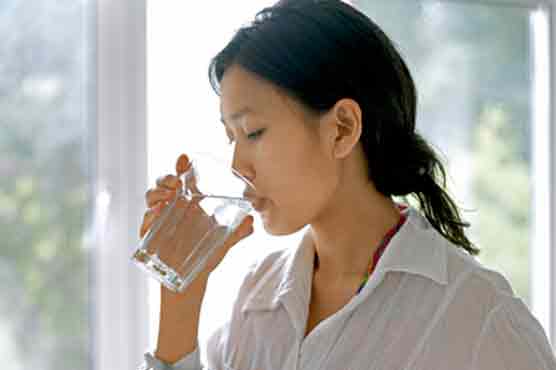Chinese patient takes odd way to cure cold

The young woman adopted a strange and centuries-old method to cure her feverish cold.
HONG KONG (AFP) - The young woman pours a pack of brown powder into a glass of hot water, stirs it well and drinks the murky mixture down, hoping the traditional Chinese medicine will cure her feverish cold.
Sofie Lau may work as a paediatric nurse and she may live in the modern, fast-paced city of Hong Kong -- but when it comes to treating her own ill-health, she prefers ancient remedies.
Despite the age of its recipes, Chinese medicine -- which has continued to thrive among Hong Kong s seven million residents -- is not standing still.
A growing number of young university-trained practitioners are pioneering changes within the industry, providing traditional remedies with modern efficiency.
Lau, 25, says it feels more natural to turn to Chinese medicine.
"I ve tried Western medicine, but usually I feel very tired after I take it. Even though I can recover very fast, I will become sick again afterwards," she explains at the Chinese medicine centre where she has come for treatment.
"But I can t just sit in front of the stove and watch herbs boiling for eight hours. I m busy with work, if we had to boil the herbal soup like we did in the past, perhaps I wouldn t consider Chinese medicine as an option."
While Chinese medicine masters used to issue instructions for the tedious hours-long process of mixing, soaking, brewing and distilling herbs, nowadays practitioners prescribe ready-made powders.
The complicated brewing process is even outsourced, with orders made over the Internet for doorstep delivery.
It is the latest development for a practice that is thousands of years old and was traditionally passed down through the generations but was regulated in 1999 as the city eyed becoming a Chinese medicine trading hub.
The health department said the regulatory framework has helped "boost public confidence".
Its popularity is growing, with imports of Chinese herbal medicines having reached HK$2.35 billion ($303 million) in 2011, up 37 percent from 2009. Health insurance plans often cover consultation costs at Chinese medicine centres.
In the late 1990s, universities began offering courses, attracting fresh thinking to the industry, which now has about 6,500 practitioners, about half the number of regular doctors in the city.
Dennis Au, 31, opened his first clinic in 2008 after a five-year undergraduate course and now has four more branches with a network of 20 colleagues.
Most of his patients are between 20 and 40, and many are surprised by how young the practitioners are, but he says it is important to keep the industry moving forward.
He offers instant medication rather than a list of boiling instructions, wears a white coat, and stores patient records on a computer.
"We didn t change the philosophy or the concept of Chinese medicine, we just changed the image of Chinese medicine," he says in a break between consultations.
"It s necessary to have this revolution. If the old trend continues, Chinese medicine will die."
Critics accuse the industry of being unscientific.
And although most cures are plant-based, in the West the image of Chinese medicine has been tarnished by its association with the use of animal parts such as rhino horn -- which has continued despite a Chinese ban in 1993.
Other traditional Chinese remedies also raise eyebrows, such as lizard-on-a-stick, dried seahorses and deer antlers, which can apparently cure ailments from acne, to colds and impotence.
But international studies have at least given credence to certain herbal concoctions, including US research last year that said a flowering plant called blue evergreen hydrangea could treat fever and ease malaria.
The Chinese have kept the faith, with the recent outbreak of bird flu on the mainland leading to a run on banlangen, a traditional Chinese medicine for colds made from the roots of the woad plant.
Hong Kong s health department is now working with the World Health Organization on a system of classification.
The industry is also obtaining a gloss of professionalism when it comes to made-to-order remedies.
David Tang set up the Hong Kong Chinese Medicine Service Centre in an industrial area six months ago, with a team of 10 staff members taking orders online, boiling the herbs, packaging them and providing next-day delivery.
"We helped simplify the logistical issues. We re a modern herb store, although we continue to use the traditional prescription," says Tang.
"We re just like the old wine in a new bottle."

